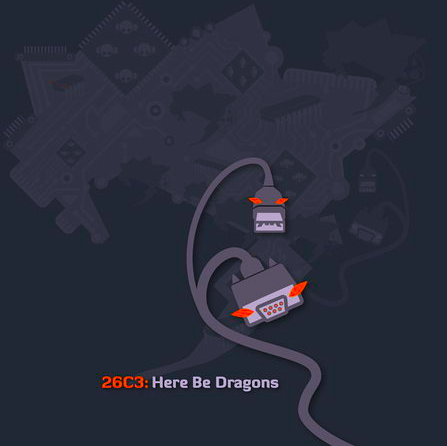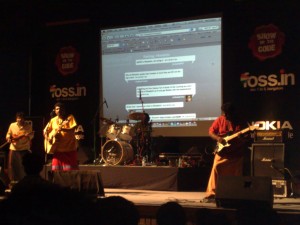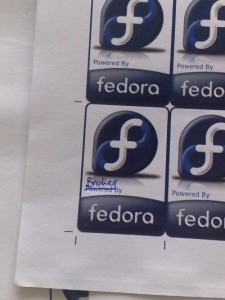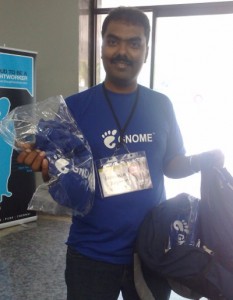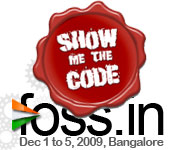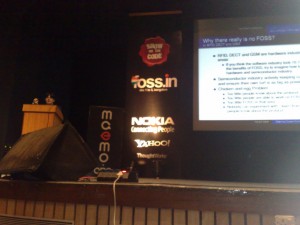Als Student kommt es hin und wieder vor, dass ich eine Hausarbeit schreiben muss. Da ich fest davon ueberzeugt, dass Uni, Wissenschaft und Wissen so frei wie moeglich sein sollten, und jedermensch auch noch durch Zahlung von Steuern potentiell das Studieren finanziert, denke ich, hat jedermensch das Recht mindestens zu sehen was ich so eigentlich den lieben langen Tag so mache.
Internet sei dank ist es heutzutage eher einfach, Dinge zu publizieren und Wissen fortzutragen. Deswegen gibt es hier nun eine Hausarbeit, die ich im letzten Semester in Gender Studies geschrieben habe.

Das Paper traegt den Namen “Weiblicher Zugang zu Technik und feministische Politiken” und das Abstract liesst sich wiefolgt:
Die Gründe, die zum Digital Divide, der digitalen Kluft, führen, sind vielfältig und Geschlecht ist einer davon.
Auch weibliche Gruppierungen haben das Ziel, den Anteil weiblicher Teilnehmer im Digitalen zu erhöhen.
Die Arbeit analysiert, wie dieses Ziel erreicht werden soll, warum das nicht gelingt und wie es eventuell doch erreicht werden kann.
Das PDF gibt es hier und ist als “Namensnennung-Keine kommerzielle Nutzung-Weitergabe unter gleichen Bedingungen 3.0 Deutschland” fuer jedermensch lizensiert. Das heisst aber nicht, dass ich es auf Anfrage anders lizensieren kann.
Die Arbeit liesst sich an einigen Stellen etwas ruckelig, was der Entstehungsgeschichte geschuldet ist. Im Prinzip sind aus 2.5 Arbeiten eine geworden. Ich hoffe, es ist dennoch nicht so schlimm.
Sollte das PDF inhaltlich nicht so spannend sein, lohnt es sich doch auf die technischen Details zu achten. So weiss das PDF, wie dessen Inhalt lizensiert ist. Dazu benutzt es XMP streams, die in das PDF eingebetted wurden. Die sind mit dem Paket hyperxmp ueber LaTeX in das PDF gekommen. Offiziell wird noch xmpincl empfohlen, aber das ist wirklich fies zu benutzen, weil mensch den XMP stream selbst erstellen muss.
\usepackage{hyperxmp} % To be have an XMP Data Stream f.e. to include the license [...] \hypersetup{ pdftitle={Weiblicher Zugang zu Technik und feministische Politiken}, pdfauthor={Tobias Mueller}, [...] pdfcopyright={This work is licensed to the public under the Creative Commons Attribution-Non-Commercial-Share Alike 3.0 Germany License.}, pdflicenseurl={http://creativecommons.org/licenses/by-nc-sa/3.0/de/} } |
Mein Evince 2.29.1 (mit JHBuild gebaut) zeigt die Lizenzinformation froehlich an, Okular 0.9.2 nicht. Wie es sonst moeglich ist, in PDF eingebettete XMP Daten anzusehen, weiss ich nicht. Es waere fuer eine automatisierte Verarbeitung sicherlich interessant.
Vielen Dank and Chillum und Sourci, die mir beratend und patchend zur Seite standen und denen der Text wahrscheinlich zu den Ohren wieder herauskommt 😉
Fuer eine inhaltliche Diskussion ist die Kommentarfunktion wohl eher schlecht geeignet aber in Ermangelung an Alternativen steht sie dazu zur Verfuegung. Ich mag die Loesung, die das Djangobook benutzt. Am Rand von jedem Absatz gibt es eine Kommentarfunktion die sehr gut funktioniert.

